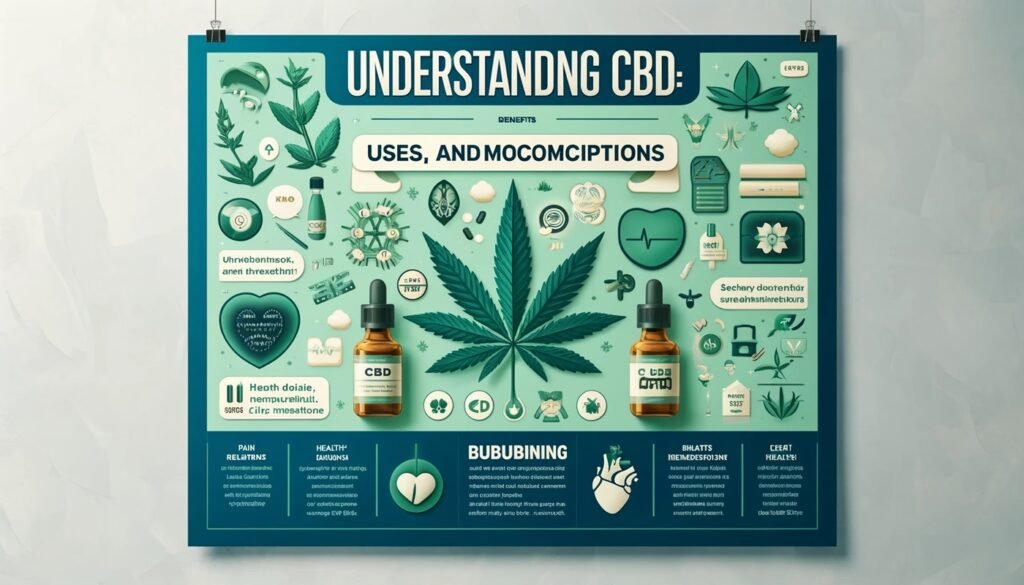
Cannabidiol (CBD) has rapidly become a popular natural remedy used for many common ailments, offering an appealing option for those seeking relief without the mind-altering effects of marijuana or certain pharmaceutical drugs. This blog delves into the scientific truths about CBD, its uses, potential health benefits, and addresses common misconceptions.
Contents
What is CBD?
CBD is one of over a hundred chemical compounds known as cannabinoids found in the cannabis or marijuana plant, Cannabis sativa. Unlike Tetrahydrocannabinol (THC), the main psychoactive cannabinoid found in cannabis, CBD is not psychoactive. This quality makes CBD an appealing option for those looking for relief from pain and other symptoms without the mind-altering effects of marijuana or certain pharmaceutical drugs.
Common Uses of CBD
- Pain Relief: Studies have shown that CBD may help reduce chronic pain by impacting endocannabinoid receptor activity, reducing inflammation, and interacting with neurotransmitters.
- Anxiety and Depression: CBD has been used to safely treat anxiety and insomnia in children with post-traumatic stress disorder (PTSD), showing potential as a treatment for numerous anxiety disorders.
- Cancer-Related Symptoms: CBD may help reduce symptoms related to cancer and side effects related to cancer treatment, like nausea, vomiting, and pain.
Benefits of CBD
- Neuroprotective Properties: Researchers believe that CBD’s ability to act on the endocannabinoid system and other brain signaling systems may provide benefits for those with neurological disorders.
- Heart Health: Recent research has linked CBD with several benefits for the heart and circulatory system, including the ability to lower high blood pressure.
- Anti-acne: The anti-inflammatory properties of CBD help lower the production of sebum that leads to acne, partly due to its anti-inflammatory effect on the body.
Addressing Misconceptions
- “CBD is psychoactive”: While CBD is an active compound in cannabis, it is non-intoxicating and doesn’t cause the high associated with THC.
- “All CBD products are the same”: The quality of CBD products can vary significantly. It is crucial to purchase these products from reputable sources that provide third-party testing.
- “CBD has no side effects”: CBD is generally well tolerated, but it can cause adverse reactions like dry mouth, diarrhea, reduced appetite, drowsiness, and fatigue in some people.
FAQs about CBD
Q: Is CBD legal?
A: The legality of CBD varies by jurisdiction. In the U.S., CBD derived from hemp with less than 0.3% THC is legal federally, but state laws vary.
Q: How should I take CBD?
A: CBD can be taken in several forms, including oils, capsules, gummies, and topical creams. The form you choose can depend on your preferred method and the intended use.
Q: Can CBD make you fail a drug test?
A: Pure CBD should not cause a positive result on a drug test, but because full-spectrum CBD products contain trace amounts of THC, they could potentially result in a positive drug test.
Q: How much CBD should I use?
A: Dosages can vary widely depending on the strength of the product and the user’s weight, metabolism, and health conditions. It’s always best to start with a low dose and gradually increase it while monitoring your body’s response.
Conclusion
CBD offers a wide array of potential health benefits, but it’s important to approach its use with informed caution and awareness of its limitations and legal status. Always consult healthcare providers before starting any new supplement regimen, especially if you have existing health issues or take other medications.